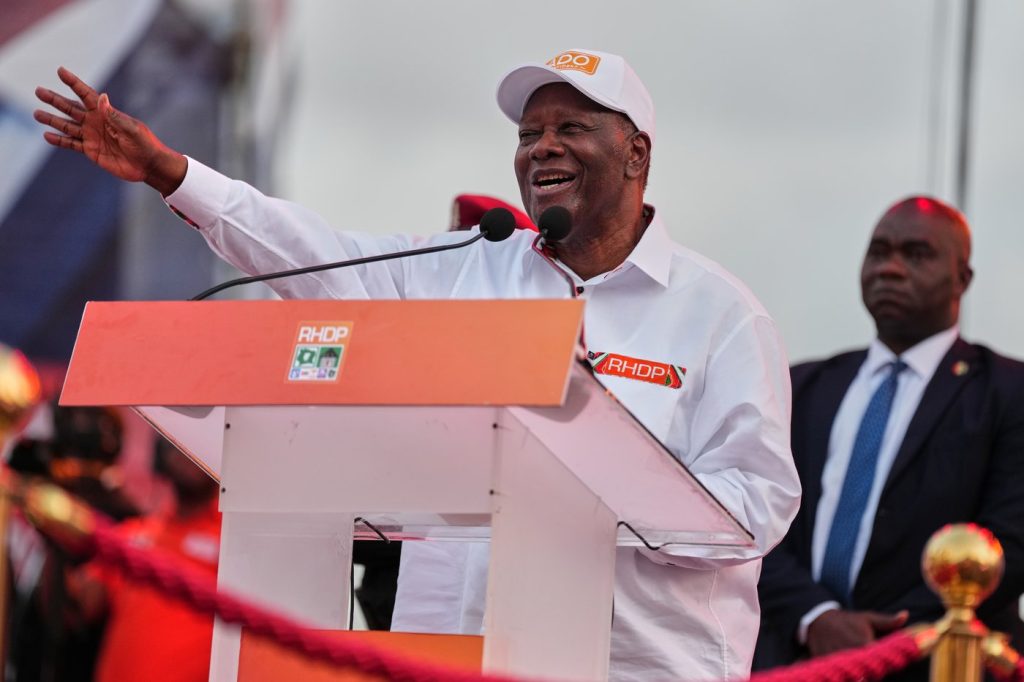On Saturday, polls opened in Abidjan, Ivory Coast, as the nation prepared to elect a new leader amid the backdrop of President Alassane Ouattara’s bid for a fourth term. The election comes after key opposition figures were barred from running, raising concerns over the legitimacy of the democratic process in the country.
Ballot stations commenced operations shortly after 0800 GMT, experiencing some initial delays. Approximately 8.7 million citizens were registered to vote in an election where turnout has historically hovered around 50% in previous elections.
This election is emblematic of a broader trend in Africa, where aging leaders remain in power despite the continent's youthful demographics. Among other noteworthy leaders, Paul Biya of Cameroon, aged 92, Yoweri Museveni of Uganda, aged 81, and 83-year-old Teodoro Mbasogo of Equatorial Guinea serve as examples of entrenched leadership in the region.
In the contest for Ivory Coast's presidency, five candidates are vying for the top job; however, many analysts predict that the 83-year-old Ouattara will secure another term. Should he win, it would mark nearly two decades of his presidency. His party, the Rally of Houphouetistes for Democracy and Peace (RHDP), holds a dominant position in the parliament, controlling 169 out of 255 seats.
Ouattara has presided over economic reconstruction efforts following civil war turmoil, reportedly achieving an annual growth rate of 6% largely fueled by the cocoa industry. Yet, despite this growth, a significant 37.5% of the country's 30 million residents live in poverty, and youth unemployment remains a critical issue.
The lead-up to the election has been marred by protests against the exclusion of major candidates who could challenge Ouattara. This includes Tidjane Thiam, a former executive at Credit Suisse, and Laurent Gbagbo, a former president with considerable support among voters. Their exclusion has prompted street protests, resulting in hundreds of arrests and raising fears of past electoral crises, which resulted in over 3,000 deaths during the 2010-2011 electoral conflict and nearly 100 fatalities during the 2020 elections.
The government has restricted public gatherings to those affiliated with the five contesting parties and deployed more than 40,000 security personnel across the nation to maintain order. In response to allegations of an opposition crackdown, Ouattara has denied such claims.
International attention towards Ouattara has decreased, with observers noting that both the international community and historical ally France seem to be preoccupied with other global priorities. Séverin Yao Kouamé, a research professor at the University of Bouaké, pointed out that this geopolitical climate is advantageous for Ouattara.
Four candidates are officially contesting against Ouattara, including Simone Gbagbo, a former first lady, and Jean-Louis Billion, who previously served as commerce minister under Ouattara. Although all challengers have made promises regarding job creation and agricultural reform, analysts suggest that none stand a significant chance against the incumbent.
At his final campaign rally in Abidjan on Thursday, Ouattara stated, “The growth has been huge, but we need to continue.” His background as a former deputy managing director at the International Monetary Fund, along with his public sector investments and infrastructure projects, have garnered him substantial support from constituents.
Vote counting will commence immediately after the polls close, with provisional results anticipated within a 48-hour window.











